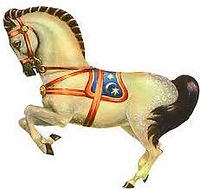15 Fun Facts about France
- Willoughby Thom
- Oct 3, 2017
- 4 min read
1. France is the world's most popular tourist destination – some 83.7 million visitors arrived in France, according to the World Tourism Organization report published in 2014, making it the world's most-visited country.
2. France is the largest country in the EU, and known as 'the hexagon' – with an area of 551,000 sq km it's almost a fifth of the EU’s total area, and due to its six-sided shape France is sometimes referred to as l’hexagone. About a quarter is covered by forest; only Sweden and Finland have more.
3. Louis XIX was the King of France for just 20 minutes, the shortest ever reign – he ascended to the French throne in July 1830 after his father Charles X abdicated, and abdicated himself 20 minutes later in favour of his nephew, the Duke of Bordeaux. He shares this record with Crown Prince Luís Filipe, who technically became King of Portugal after his father was assassinated but died from a wound 20 minutes later.
4. Liberté, égalitié, fraternité meaning ‘liberty, equality and fraternity’ (or brotherhood) is the national motto of France – it first appeared around the time of the Revolution (1789–1799), and was written into the Constitutions of 1946 and 1958. Today you’ll see it on coins, postage stamps and government logos often alongside ‘Marianne’ who symbolises the ‘triumph of the Republic’. The legal system in France is still largely based on the principles set down in Napoleon Bonaparte’s Code Civil after the revolution, in the 1800s.
5. The French Army was the first to use camouflage in 1915 (World War I) – the word camouflage came from the French verb ‘to make up for the stage’. Guns and vehicles were painted by artists called camofleurs.
6. The Académie Française has aimed to preserve the French language since 1634 – by attempting to ban, somewhat unsuccessfully, foreign words such as blog, hashtag, parking, email and weekend. It was started by a small group of French intellects and officially recognised by Louis XIII in 1635.
7. At least 40 percent of the music on private radio stations must be of French origin – since 1996, the country’s top media regulator the Conseil Supérieur de L’Audiovisuel (CSA) has been charged with enforcing this French law. The CSA also requires half of the French music quota to be less than six months old.
8. Europe’s highest mountain is in the French Alps – Mont Blanc, at 4,810m, takes an arduous 10 to 12 hours to climb to the summit. Alternatively, you can take a leisurely 20-minute trip up on Europe’s highest cable car on the nearby Aiguille du Midi to get a brilliant view of Mont Blanc.
9. The Louvre Museum in Paris was the most visited museum in the world in 2014 – with an amazing 9.3 million visitors, it received almost the same amount of people as the population of Sweden.
10. The world’s greatest cycle race, the Tour de France, has been around for more than 100 years – with the first event held on 1 July 1903. Every July, cyclists race some 3,200km (2,000 miles) primarily around France in a series of stages over 23 days, with the fastest cyclist at each stage wearing the famous yellow jersey.
11. France has produced some of the world’s most influential writers and thinkers – Descartes and Pascal in the 17th century, Voltaire in the 18th, Baudelaire and Flaubert in the 19th and Sartre and Camus in the 20th. To date, France has won more Noble Prizes for Literature (15) than any other country.
12. France produces nearly a billion tons of cheese a year in around 1,200 different varieties – in France it's an ancient art: goats cheese dates back to at least 500AD, the blue-veined Roquefort was mentioned in records of an ancient monastery in Conques as early as 1070, and hard farm cheeses like Emmental started to appear in the 13th century. A French proverb claims 'un fromage par jour de l’année' – there is a different cheese for every day of the year.
13. You might get a ‘fish’ stuck on your back on April Fool’s Day – if you’re in France on 1 April, don’t be surprised if children try to stick paper fish to your back and call you a ‘Poisson d’Avril’ (April Fish). This tradition is supposed to have started in the 16th century when King Charles XIV of France changed the calendar and those who continued to celebrate the end of the New Year at the end of March were ridiculed as fools.
14. The oldest recorded human voice is French – a 10-second fragment of the song Au Clair de la Lunewas recorded by French inventor Edouard-Leon Scott de Martinville on paper on 9 April 1860. He used a ‘phonautograph’, which allowed sounds to be recorded visually. The paper recording was discovered in 2008 in Paris, and using modern science the clip was played for the very first time.
15. It is against the law to carry live snails on a high-speed train in France without their own tickets – in fact, any domesticated animal under 5kg must be a paying passenger in France. In 2008, a Frenchman was fined when he was caught carrying snails on a TGV, although the fine was later waived.

Information from: https://www.expatica.com/fr/about/30-interesting-facts-about-France_109142.html





Comments